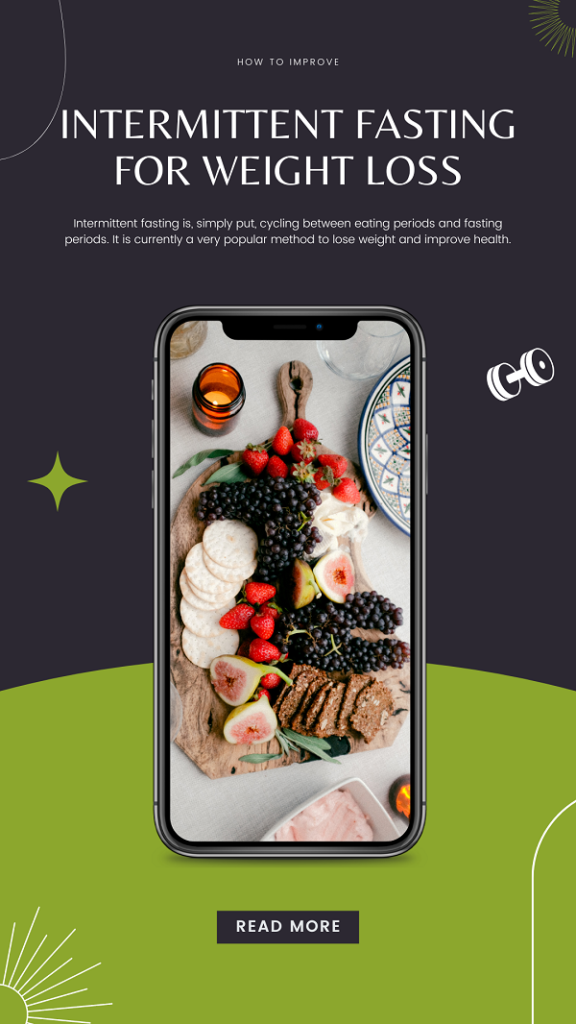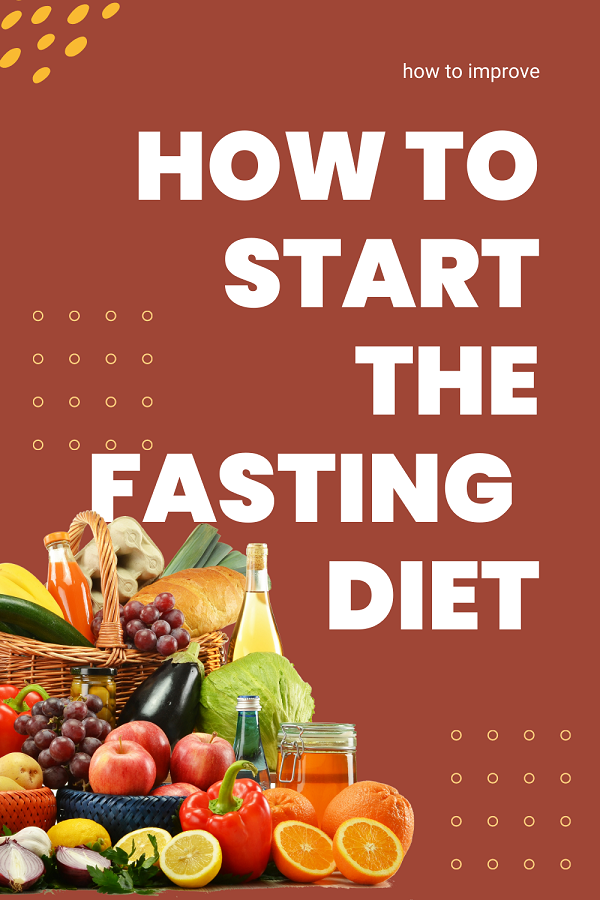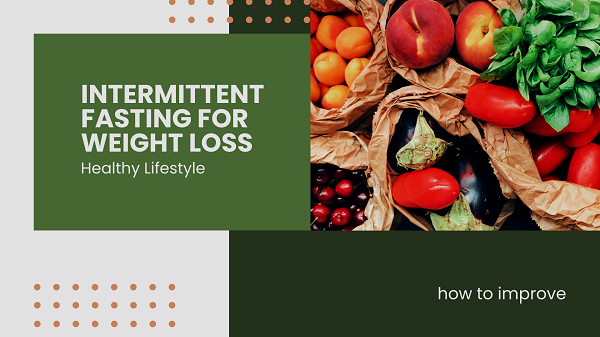An intermittent fasting diet for weight loss is a type of time-restricted diet in which meals are compressed into a shorter period of time during the day, with a long interval between the last meal of the day and the first meal of the next day. Typically, those on this diet try to eat 8 hours a day and leave a 16-hour gap.
if done correctly, fasting has the potential to deliver important health benefits: weight loss, correction of type 2 diabetes, and much more. Plus, it can save you time and money.
The goal of this beginner’s guide is to help you learn everything you need to know about intermittent fasting diet for weight loss so that you can start putting it into practice.
intermittent fasting for weight loss: WHAT IS IT?
Every day, from the time we go to bed until “breakfast,” which is really just a time to break the fast, we observe a fast. In order to get the health benefits of intermittent fasting and use it as a weight-loss diet, the fast is extended for a set number of hours or days.
Daily and weekly intermittent fasting are the two basic variations. That is, fasting for a short period of time each day or drastically reducing your caloric intake twice per week.

Intermittent Fasting Diet List
Intermittent fasting is not actually a diet program. It is the consumption of the foods you consume during the day in a different order. Intermittent fasting diet; We can define it as a nutrition program in which no food is taken in specified time periods during the day or different restrictions are made on energy intake on certain days of the week.
Who Should Not Do Intermittent Fasting Diet?
Those with diabetes/diabetes, problems with blood sugar, low blood pressure, eating disorders, and those with a Body Mass Index (BMI) of 18.5 and below should not do intermittent fasting. In addition, it is inconvenient for athletes or those who exercise intensely, those who use regular medication, pregnant women, nursing mothers, adolescents, and women trying to become pregnant to follow the intermittent fasting diet.
Intermittent Fasting Diet Should Be Done Under the Accompaniment of a Dietitian
Every diet should be individual and different because many features such as age, gender, height, and physical activity level vary depending on the person. That’s why everyone should plan for themselves by choosing the type of intermittent fasting that they can easily adapt to their own lifestyle. A healthy diet program; should be accessible, sustainable, and adaptable to our lives. There are several variants of the Intermittent Fasting diet. It is helpful to choose the one that best suits your lifestyle.
Intermittent Fasting Diet Hours

There are several variants of the intermittent fasting diet. The most popular of them are;
The 16:8 Method: Fasting for 16 hours (including sleep) and eating for 8 hours. For example; You eat between 11.00-19.00 and do not consume any food for the rest of the day.
5:2 Method: Contains normal calories 5 days a week and very limited calories 2 days a week (500-800 kcal/day). At this point, it is very important for health not to apply for two consecutive days with limited food. On days with limited meals, one-fourth of the amount of food consumed on normal days is consumed.
Eat/Stop/Eat Method: It is the method of fasting for 24 hours once or twice a week. During one day, 24 hours pass from dinner to the next dinner.
Benefits of Intermittent Fasting Diet
In order to experience the benefits of an intermittent fasting diet, it is important to plan your nutrition program with healthy foods and to get the nutrients your body needs during the day. However, the health benefits of intermittent fasting can be listed as follows:
- Increases insulin sensitivity
- It can benefit the reduction of insulin resistance in the body,
- May be protective against Type 2 diabetes by providing blood sugar regulation,
- It can lower the level of triglycerides in the body, known as bad cholesterol, caused by energy restriction.
Intermittent Fasting Makes Healthy Eating Easier
One of intermittent fasting’s key advantages for most individuals is how easy it is to do.
The majority of intermittent fasting programs only require you to tell the time, not calculate calories.
The diet that you can follow for the longest period of time is the finest one for you. There will be clear advantages for long-term health and weight maintenance if intermittent fasting makes it simpler for you to maintain a nutritious diet.
The ability to eat healthily is one of the key advantages of intermittent fasting. Long-term, it may be simpler to maintain a nutritious diet as a result.
Possible Harms of Intermittent Fasting
Improperly planned intermittent fasting diets can have adverse effects depending on age, health status, and lifestyle.
Insufficient energy intake on designated days; can cause a decrease in concentration, negatively affect the mood, and cause fatigue.
An intermittent fasting diet, if not implemented correctly, can cause some hormonal imbalances in women. Some animal studies have been done; It has been shown that an intermittent fasting diet applied for a long time in female individuals has negative effects on hormonal balance and may cause some problems related to fertility.
Intermittent Fasting can also cause some eating disorders such as anorexia, bulimia, and binge eating.
Intermittent Fasting Diet List

It is very important that the food groups included in the intermittent fasting diet are in sufficient and balanced amounts.
- The diet should contain all the food groups that form the building blocks of the body, such as carbohydrates, proteins, fats, vitamins, and minerals, and should provide the energy the body needs. Otherwise, possible health problems may occur.
- Carbohydrate-containing foods such as high-fiber cereals, whole wheat pasta, whole wheat rice, and bulgur should be included in the diet.
- Foods such as milk, yogurt, and kefir, which contribute to keeping the blood sugar level in balance, are also foods that should be included in a regular and balanced diet.
- Fruit and vegetable group foods containing high vitamins and minerals should be included in the diet list because of the antioxidants they contain.
- Both animal and vegetable protein groups are also important in an intermittent fasting diet. Meat, chicken, eggs, fish, and legumes with high protein content provide a sense of satiety for a long time due to their delayed digestion, as well as the protection and construction of muscles.
- Sustainable and healthy weight loss can be achieved with an intermittent fasting diet designed to ensure adequate and balanced intake of all these food groups.
Conclusion
Intermittent fasting can ultimately be a helpful weight loss strategy.
The resulting weight loss is mostly brought on by a decrease in caloric intake, while some positive effects of hormones may also be present.
Although intermittent fasting is not right for everyone, it can be quite helpful for others.
No matter what diet you choose, including intermittent fasting, you can start by constructing a nutritious diet instead of waiting for weight loss with various weight loss remedies if you want to lose weight and get in shape.
Purchase the diet list if you claim you want to lose weight by moving towards a healthy and balanced diet.
Frequently asked questions and answers about intermittent fasting for weight loss
Yes, by fasting you can continue to do all your usual activities, including exercise. To supply the necessary energy for exercise, it is not necessary to have eaten recently. Instead, your body can burn stored energy (such as body fat) for energy.
No. This is the most prevalent myth about intermittent fasting, and it’s generally not true. In fact, some studies indicate that intermittent fasting may even increase basal metabolic rate (at least initially) and may improve overall body composition.
You should not fast in the following cases:
you are underweight (BMI < 18.5)
have an eating disorder.
If you are pregnant.
you are breastfeeding.
If you are under 18.
That depends on each person, and on the duration of the fast. During fasts, the body first breaks down glycogen into glucose to use for energy. It then increases the breakdown of fats to provide energy. Surplus amino acids (the building blocks of protein) are also used for energy, but the body doesn’t burn its own muscle unless forced to.
Not necessarily. This is a misconception based on speculation and statistics, but it doesn’t hold up when put to the test. Skipping breakfast gives your body more time to burn fat for energy. Since you are less hungry in the morning, it is often easier to skip it and break your fast later in the day.

